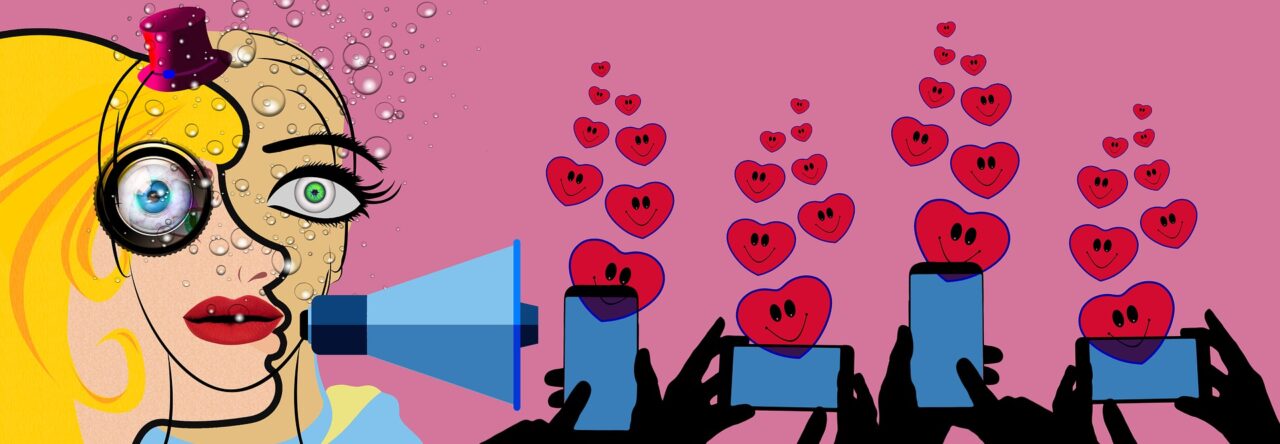Influencers are constantly following Erving Goffman’s conception of the self, performing for their fans and followers in a specific way. They post content that they believe will receive a lot of views and support, which might not be their true front stage, rather it is their back stage that they have to maintain to keep their followers and fans. Goffman’s theory of the self explains that as individuals, we are always performing, and creating our identity based on the interactions that we have with people rather than just one single thing. As individuals in society, we perform in order to influence our interactions. As Goffman discusses, our performances have a front that includes “our conscious or unconscious presentation of self to observers… they reinforce society’s sanctioned value system” (Goffman 2002: 210). In other words, there are specific performances in which people may partake in in order to maintain this front. Depending on the audience, different versions of ourselves may also be performed. In terms of cancel culture on YouTube, content creators’ self presentation may be a totally different version of themselves than what they present not only in person, but to their friends and a different general audience. Public figures perform to influence their audienc’s positive reception, creating content that fits the role that the influencers play in the eyes of their viewers and subscribers. In terms of cancel culture, influencers post apology statements and videos in order to show that they are taking responsibility for their actions. The public eye online has a significant influence on the way that celebrities and influencers act and perform, doing so in a particular way to that audience. Goffman states, “when an individual appears before others he will have many motives for trying to control the impression they receive of the situation” (Goffman 2002; 211). The frontstage is more what is expected to be seen rather than what we want.
Along with the frontstage, in Goffman’s theory of the self, he discusses the backstage which is the individual that makes an appearance where the outside audience is excluded, and they are presented in front of closer people, friends, and relatives. The way that one acts in the backstage often is very different from what is seen on the front stage. The backstage is what we do not see online, the way that these people act around those that mean the most to them, and share a more genuine relationship with instead of those we have to maintain this front stage with. Different from the front stage, the back stage can be fun, and different and who you truly are as a person because you do not have to act in a way that is expected of you among society. It allows you to be more of who you are and want to be for yourself, different from what the audience in the front stage wants to see. To show the connection between the front and back stage, one would act very differently at a day at work in their office building than they would hanging out with their friends in their apartment when they got back. On social media, influencers act differently on their platforms and in their videos than they do behind the screen with their close friends and family. In regard to the research presented in this portfolio, scandals that require influencers to post an apology video is evidence of the backstage self that gets to be seen by the front stage audience. This is because the influencers have to be vulnerable and honest with themselves and their fans or followers about who they are, what they did, and what they will do in the future to become better, which is not something that is typically posted on influencers YouTube pages.
